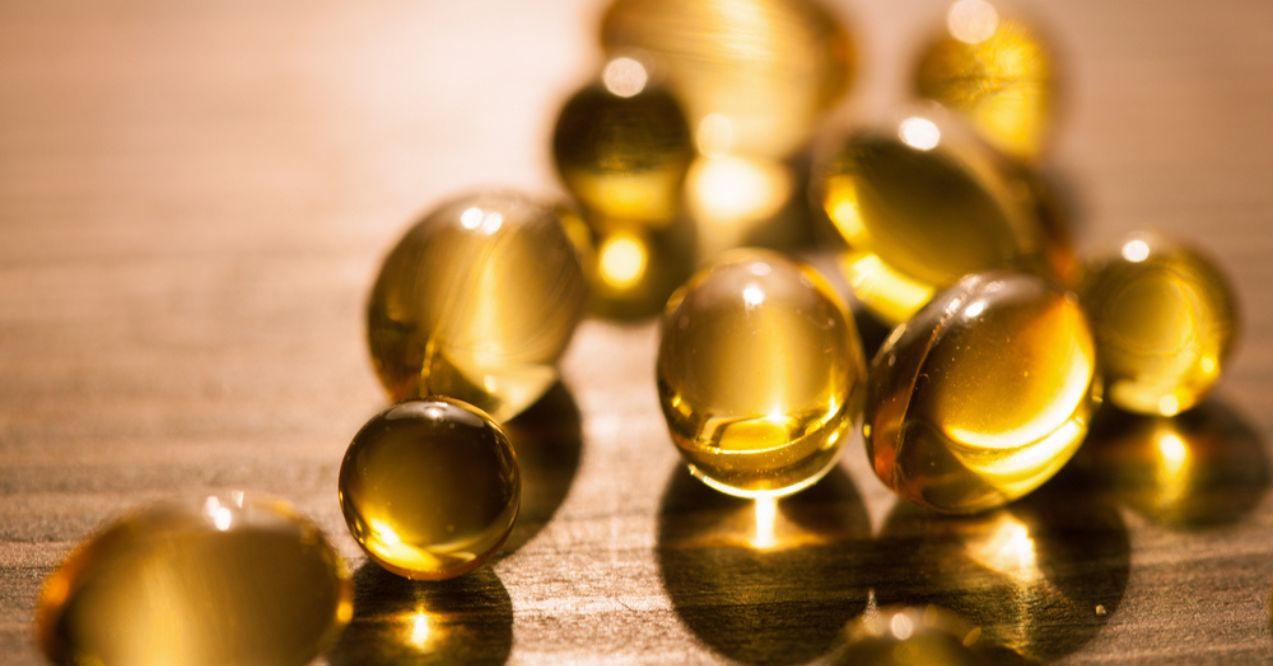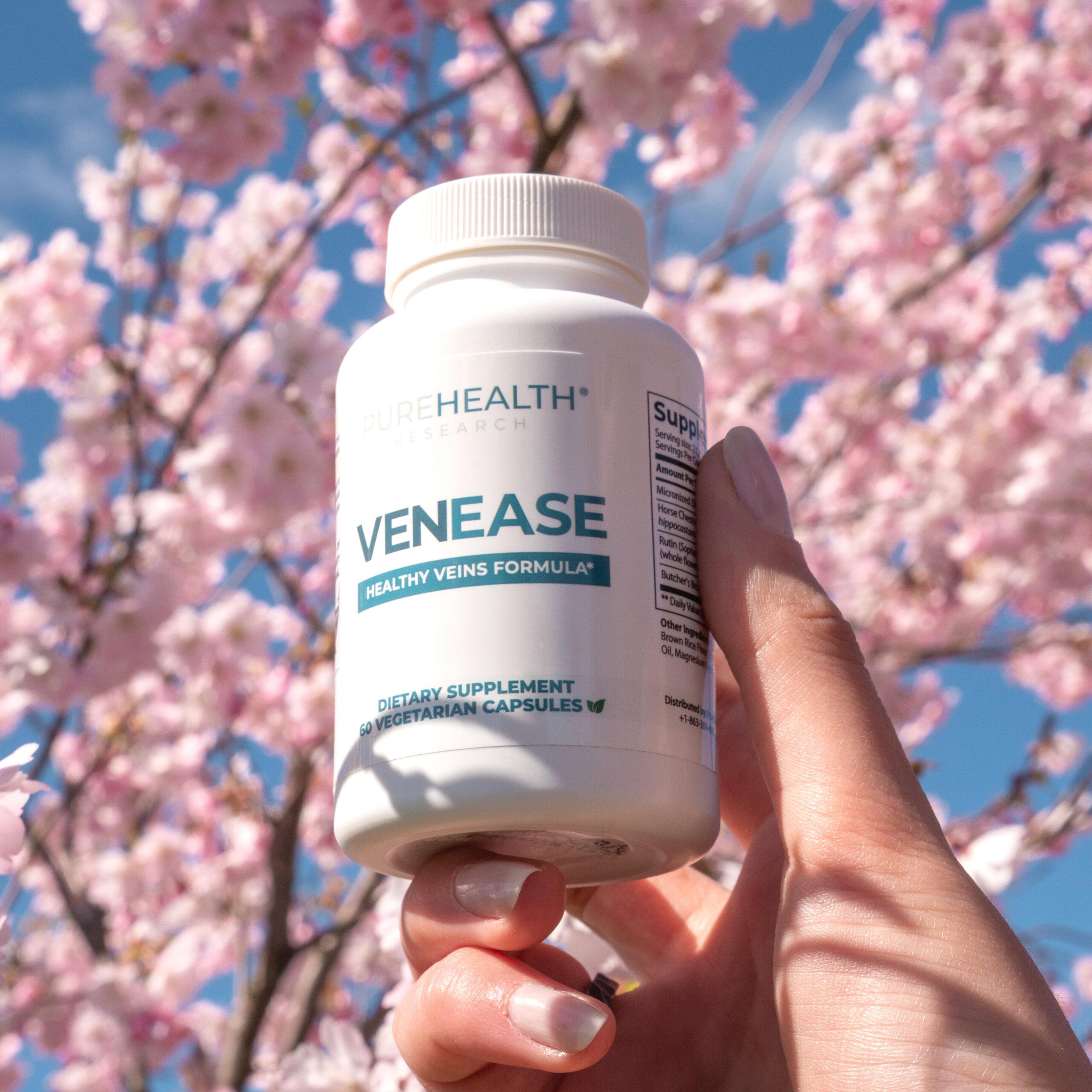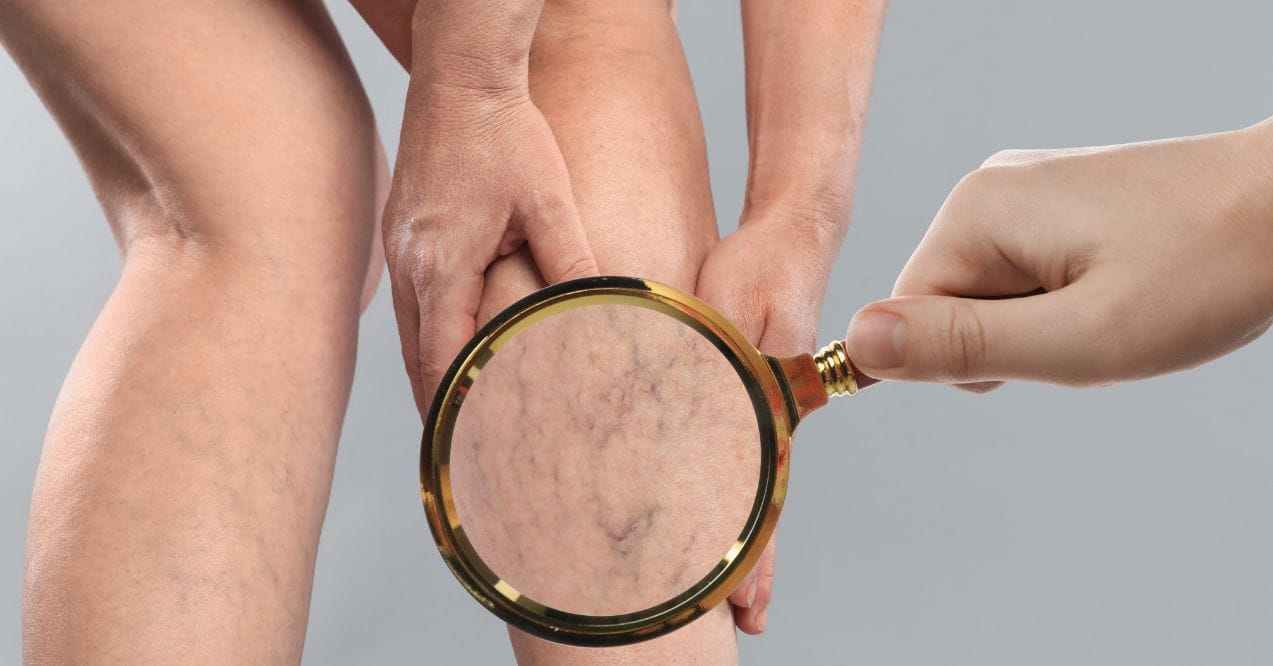6 Best Vitamins for Tired Legs
Looking to learn more about vitamins for tired legs? Step in here and discover the causes of leg fatigue.


Are vitamins for tired legs necessary as we age? Many adults between 40-65 maintain active lifestyles but begin to experience fatigue, aching, and heaviness in their legs. This can result from weakened veins, poor circulation, or muscle loss, all common with aging. Sitting or standing for long periods may worsen discomfort, leading to cramping and swelling.
Tired legs can also indicate underlying health concerns, making it important to seek medical advice to rule out circulation issues or other conditions. While regular exercise, a well-balanced diet, and proper hydration are key, essential nutrients like potassium, magnesium, vitamin C, and vitamin E support circulation, reduce swelling, and promote muscle function. The best vitamins for tired legs can supplement these efforts, helping maintain leg health and prevent further complications.
Possible Causes of Tired Legs
A variety of factors can result in tired legs, each creating feelings of heaviness and fatigue. For example, intense physical activity, often leading to overexertion, can tire and strain muscles. Many aging adults suffer from poor circulation, which restricts the free flow of blood to the legs and can cause discomfort. Having an iron or vitamin deficiency can also contribute to this discomfort.
As people age, fluctuations in muscle and blood vessel capabilities can lead to tired legs. Aging naturally causes muscles to deteriorate, affecting endurance. Veins also weaken with age and can contribute to health conditions that result in fatigued legs.
Although age inevitably affects our bodies, how we choose to live our lives also plays a critical role. Living an active lifestyle, not smoking, and eating healthy can help stave off tired legs. On the other hand, smoking and poor eating habits can put individuals on the fast track to this condition. Sedentary habits also increase the rate of muscle deterioration, and excess weight puts more stress on the legs.
Now, what vitamins are good for muscle recovery? There are several that can contribute to leg health. Some of these include:
- Vitamin D
- Vitamin B1 (Thiamine)
- Vitamin B12
- Vitamin B3
- Iron
- Vitamin E
Particularly for aging adults, consuming enough of these nutrients is crucial. Maintaining a healthy intake of these best vitamins for tired legs supports cardiovascular health, reduces swelling, and improves circulation. Addressing deficiencies of these vitamins can help improve leg function and alleviate leg discomfort.
Best Vitamins for Tired Legs
1. Vitamin D

Wondering what vitamin is good for tired legs? This vitamin contributes to muscle function as well as bone health. Studies have consistently shown the benefits of maintaining adequate vitamin D levels, which include leg strength retention and fatigue reduction.
Vitamin D improves the absorption of calcium, which is a critical mineral for bone strength. A proper amount of vitamin D allows for the mineralization of bones. This is the process through which bones are formed and strengthened. Stronger bones are less likely to fracture. Conversely, a lack of vitamin D can result in bone disorders. Moreover, adequate levels of this vitamin have consistently shown to help retain leg strength and reduce fatigue, making it one of the best vitamins for muscle fatigue.
Various studies demonstrate a positive correlation between vitamin D levels and leg strength in older adults. The implication is that maintaining a sufficient level of vitamin D can contribute to preserving muscle strength. In contrast, vitamin D deficiency has been shown to contribute to muscle fatigue and weakness. For those looking into how to get vitamin D, it is mainly sourced through sunlight exposure, dietary supplements, and foods fortified with vitamin D.
2. Vitamin B1 (Thiamine)

Another nutrient important for nerve health and energy metabolism is thiamine, or vitamin B1. The nervous system relies on vitamin B1 to function correctly. It contributes to supporting nerves and the transmission of nerve signals. Vitamin B1 also participates in the energy metabolism process. It is responsible for breaking down glucose and converting it to energy.
Nerve health and energy metabolism are two important factors impacting tired legs. Since vitamin B1 helps to create energy, a lack of this nutrient results in a lack of energy. Without a sufficient amount of vitamin B1, people often experience fatigue and weakness in their legs. Have you ever wondered, “Why do my muscles fatigue so quickly during a workout?” This could be the reason. A sufficient intake of vitamin B1 can help how to increase energy levels and support nerve health in the legs.
3. Vitamin B12

Like vitamin B1, vitamin B12 also contributes to nerve function. A covering called myelin sheath protects the nerve fibers. This protective cover allows for the transmission of nerve impulses. Vitamin B12 is a crucial element in maintaining the myelin sheath, which is necessary for nerves to function. Properly working nerves facilitate the use of muscles. Impaired nerves, which can stem from a lack of vitamin B12, inhibits muscle contraction. People with impaired nerves might experience numbness, tingling, or difficulty walking. This condition prohibits individuals from participating in day-to-day activities and physical exercise.
Unlike vitamin B1, vitamin B12 also deals with the formation of mature red blood cells, which are the ones responsible for carrying oxygen from the lungs and delivering it to the body’s organs and tissues. A lack of vitamin B12 can introduce health issues like anemia, resulting in symptoms such as fatigue and weakness. Maintaining a sufficient level of this vitamin helps defend against fatigue and weakness.
4. Vitamin B3

Niacin, better known as vitamin B3, contributes to the production of energy and circulation, which are both crucial for optimal leg functioning. In the energy production process, vitamin B3 contributes in several phases. It helps break down glucose in the cell’s power plant, the mitochondria to produce energy.
The energy produced during this process is called ATP, which is essentially the energy currency of the cell. Niacin contributes to this whole process. A lack of vitamin B3 can deplete your energy levels and slow you down.
Vitamin B3 is also crucial in circulation. Its job is to expand blood vessels, which allows for better blood flow. In turn, this supports the delivery of oxygen and nutrients to the muscles. Niacin also plays a part in removing cellular waste. For example, it helps to remove lactic acid from muscles, which lowers the risk of cramps and tiredness. It’s one of the best vitamins for tired legs.
5. Iron

Iron is another nutrient crucial for maintaining healthy, active legs. Its roles are very similar to those of vitamin B3. First, iron is essential for transporting oxygen to the muscles and throughout the body during physical activity. It also aids the mitochondria in producing energy and cellular metabolic functions. Iron can even improve your sleep quality.
An iron deficiency often results in restless legs, abnormal sleep patterns, and excessive leg fatigue. A balanced diet with lots of iron-rich foods can help your muscles work at their maximum capacity.
6. Vitamin E

Vitamin E is an antioxidant that defends cells against tissue-harming oxidative stress and improves circulation. Free radicals, molecules that can cause chaos within cells, are sedated by vitamin E, allowing for the maintenance and function of muscles.
Oxidative stress, which happens when free radicals are left to run rampant, can lead to muscle cramping. Vitamin E also comes to the rescue to alleviate this condition. When muscle cells are injured, vitamin E contributes to the regeneration and recovery process. With its variety of important functions, vitamin E is crucial for leg health.
Role of Electrolytes in Leg Health
Electrolytes are critical for muscle function and hydration, therefore preventing leg fatigue and cramps. Potassium, sodium, and magnesium are a few examples of electrolytes. These minerals are required for muscles to contract properly. Potassium and sodium also help create fluid equilibrium in the cells. They portion the amount of water that goes outside the cells and the amount that remains inside. Sodium, in particular, helps with hydration because it retains water within the body, keeping it hydrated and preventing cramps.
In addition to several other vitamins, electrolytes also contribute to nerve function and energy metabolism. Nerves have to transmit signals to the muscles, communicating when they contract. Electrolytes support this line of communication, making it more efficient. Magnesium promotes ATP synthesis, allowing for more efficient energy production and permitting the body to use its muscles for longer.
Strategies Beyond Vitamins for Tired Legs
Beyond vitamins, several other methods exist to alleviate tired and achy legs. For vitamins to maintain hydration, you must have a sufficient water intake. Drinking water often throughout the day, and especially when participating in physical activities, helps to reduce leg cramps and fatigue. An obvious way to prevent fatigue is to rest. It’s crucial to provide muscles with enough recovery time to regenerate and reset. You can achieve this by getting a full night’s rest every night and adding rest days into your exercise schedule.
While exercising, even the clothing you wear can affect your performance and recovery. Studies suggest that compression garments help to reduce muscle fatigue by facilitating circulation. Therefore, it is recommended that individuals participating in extensive physical activity wear compression garments while they are active.
Although specific nutrients, like the several vitamin types discussed here, are essential for tired legs, an overall balanced diet is also necessary for proper muscle function and energy levels. A proper diet should include a range of foods that are dense with nutrients and that provide crucial vitamins, minerals, and macros.
Choosing the Right Supplements
Are you pondering how to relieve tired legs? Fusing a healthy diet with a consistent exercise routine and high-quality supplements can help alleviate tired and achy legs. The key is choosing the best optimal health supplements for fatigue. It’s vital to take into account factors such as third-party testing, ingredient transparency, bioavailability, unnecessary additives, brand reputation, and research when going for one.
One supplement that may help alleviate the aches and discomfort of tired legs is Venease by PureHealth Research. Venease addresses vein integrity, reducing the appearance of unsightly bulging veins directly and preemptively.
Its high-quality ingredients, formulated and approved by the highly esteemed Dr. Holly Lucille, ND, RN, works on blood vessels to strengthen venous walls, tone, and function, reduce disfiguring swelling and skin irritations, and optimize blood flow. As a result, individuals tend to experience fewer associated aches and discomfort in their legs. Say hello to more comfortable legs with Venease!
Conclusion
To address tired, achy legs, maintaining essential vitamins and minerals is key. The best vitamins for tired legs include Vitamin D for muscle function, B1 and B12 for nerve health and energy metabolism, and B3 for circulation. Vitamin B3 promotes circulation, and iron ensures oxygen transport, preventing fatigue and restless legs. Vitamin E acts as an antioxidant, supporting muscle recovery and circulation, while potassium, sodium, and magnesium help with hydration and cramp prevention. A balanced diet and proper supplementation improve muscle function and energy levels. Venease by PureHealth Research is one of the best supplements for fatigued legs, strengthening veins and reducing discomfort.
As people age, various factors contribute to tired and achy legs. Veins weaken, leading to decreased circulation, and causing fatigue. Muscle mass declines naturally, so physical exhaustion comes quicker. Extended periods of inactivity and sedentary behaviors create poor circulation, which results in heaviness and aches in the legs. Deficiencies in several vitamins and nutrients can affect energy metabolism and muscle function. A sedentary lifestyle that includes smoking and poor eating habits can speed up the process of muscle deterioration and worsen leg fatigue.
Vitamins and nutrients such as vitamin D, B1 (thiamine), B12, B3 (niacin), E, and iron all play a role in leg fatigue. Consuming their recommended intake is essential to prevent leg fatigue from developing.
An exercise routine that includes cardiovascular, strength, and flexibility training can reduce tiredness in the legs. These activities include walking, cycling, yoga, leg press, and resistance band exercises.
Usually, tired legs are just a symptom of overuse and normal fatigue. However, if you experience continuous discomfort, swelling, numbness, or loss of balance, those may be signs of something more serious. If you encounter any of those symptoms or have a history of blood clots or injuries, you should seek the advice of a healthcare practitioner.
Maintaining a balanced diet is a paramount factor in relieving tired legs. Proper nutrition contributes to muscle health, energy levels, and circulation.
Lifestyle changes such as an adjustment in your diet or exercise routine can improve your muscle health, energy levels, and circulation. Working on these elements will help reduce leg fatigue.
They do. When combined with a balanced diet, an active lifestyle, and sufficient hydration, supplements can alleviate tired legs.
Sign up for our Healthy Living newsletter!
Advertisement. This site offers health, wellness, fitness and nutritional information and is designed for educational purposes only. You should not rely on this information as a substitute for, nor does it replace, professional medical advice, diagnosis, or treatment. If you have any concerns or questions about your health, you should always consult with a physician or other health-care professional. Do not disregard, avoid or delay obtaining medical or health related advice from your health-care professional because of something you may have read on this site. The use of any information provided on this site is solely at your own risk.














